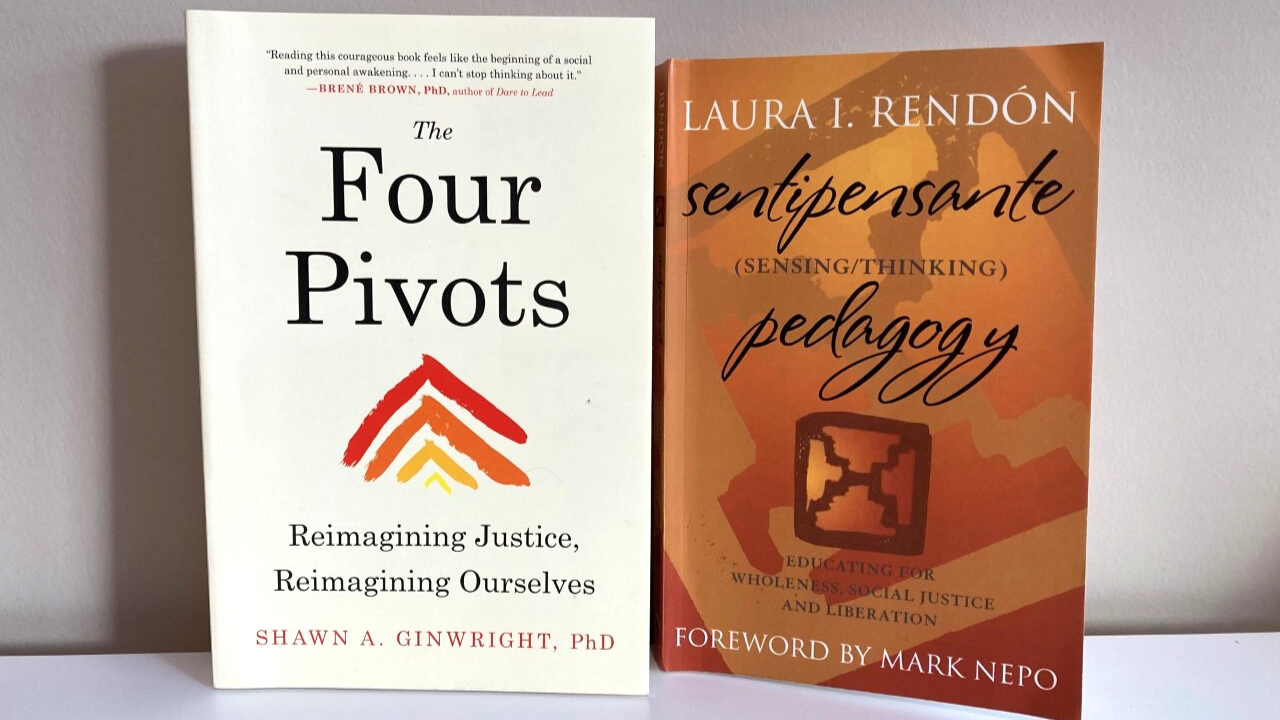
As I did at the end of 2021, I’m closing 2022 by sharing a few favorite books I read this year (although not necessarily published this year).
You'll see from this list, I tend to be very interdisciplinary in my reading. This is both due to and influences my holistic approach to intercultural teaching and learning.
So here are my favorite reads and top recommendations from 2022…
Non-Fiction
Laura I. Rendón, Sentipensante (Sensing/Thinking) Pedagogy: Educating for Wholeness, Social Justice and Liberation
This book is a must-read for any educators committed to creating inclusive, holistic, transformative learning experiences. Rendón first identifies “seven agreements that are firmly entrenched in the academic culture” of higher education in the United States:
- Agreement to Privilege Intellectual/Rational Knowing
- Agreement of Separation
- Agreement of Competition
- Agreement of Perfection
- Agreement of Monoculturalism
- Agreement to Avoid Self-Examination
The rest of the book then explores the question: "What is the experience of creating a teaching and learning dream (pedagogic vision) based on wholeness and consonance, respecting the harmonious rhythm between the outer experience of intellectualism and rational analysis and the inner dimension of insight, emotion, and awareness?" (p. 2).
Shawn A. Ginwright, The Four Pivots: Reimagining Justice, Reimagining Ourselves
Society is broken, and what we need most right now is healing. That’s the main message in this book, where Ginwright outlines four myths that hold us back from achieving healing and sustainable, systemic change, then proposes four critical pivots:
- Awareness: pivot from lens to mirror
- Connection: pivot from transactional to transformative
- Vision: pivot from problem-fixing to possibility-creating
- Presence: pivot from hustle to flow
You can listen to Ginwright, Professor of Education in the Africana Studies Department at San Francisco State University, talk about the book with Brené Brown on the Unlocking Us podcast.
Lisa Feldman Barrett, Seven and a Half Lessons About the Brain
This is a fascinating and highly-readable little book about neuroscience and the brain. Barrett illuminates how our brains are wired, the process by which human beings are socially and culturally conditioned, and how this impacts the way we make meaning and engage with others and the world. If you read just one book on neuroscience, this would be my recommendation.
Novels / Memoirs
Isabel Wilkerson, The Warmth of Other Suns: The Epic Story of America's Great Migration
Wilkerson brilliantly details the decades-long migration of Black Americans who left the south to seek a better life in northern and western parts of the United States from 1915 to the 1970s. The book is well-researched and educational, yet also extremely readable as Wilkerson weaves together the stories of three different individuals whose lives were shaped by this great migration.
This book—or excerpts from it—would make excellent reading in history courses covering that time period, or courses on racial relations in the United States. I also look forward to reading Wilkerson’s more recent book, Caste: The Origins of Our Discontents.
Michelle Zauner, Crying in H Mart: A Memoir
This is the story of a Korean-American woman who returns to her hometown of Eugene, Oregon, to care for her dying mother. Confronting the possibility of losing her mother—the primary tie to her Korean heritage—Zauner grapples with her own sense of identity.
Beyond recommending the book in its own right, I could also envision using excerpts (or the entire book) to facilitate discussions around identity, as well as the relationship between food and culture, which is an important theme throughout the book.
Ly Tran, House of Sticks: A Memoir
Ly Tran was just a toddler when, in 1993, her family moved from a small town in Vietnam to Queens, New York, where they struggled to make ends meet. In this book, Tran—the youngest of four children and only daughter—eloquently shares her story of growing up between worlds.
Like Zauner’s memoir, this would also be an excellent book to use to discuss identity development and the challenges of navigating multiple cultures during adolescence.
What's On Your List?
I’d love to hear from you! What are the best books you read in 2022? What’s on your reading list for 2023? Please share your thoughts and recommendations in the comments section below!
Join the Conversation!
Enjoying the blog? You’re invited to join me and an amazing group of higher education professionals committed to fostering intercultural learning at the next Intercultural Leadership Forum! You'll have a chance to connect with others doing this work and gain new insights as you move toward your intercultural goals.


